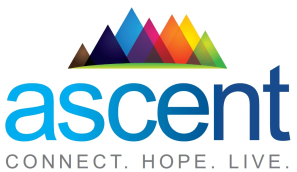You are not your addiction
Not long ago, anyone who found themselves addicted to drugs would become an instant social outcast. They were labeled as derelicts without any drive or ambition.
People saw their manipulative behaviors as part of their personalities instead of what they really are: part of a disease.
We’ve come a long way since those days, but we still have a long way to go. Science has helped us understand that addiction changes a person’s brain chemistry, so they are no longer in control.
Research has also shown us that addiction can take anyone by surprise. An addictive substance must be present, of course, but we don’t know when or how it will happen. So many of us, recovering addicts and not, have a massive illusion of control. We think bad things will never happen to us. So we take another hit or have another drink. We’ve got this. Until we don’t.
Addiction can happen to virtually anyone, and it most definitely does not define you.
Addiction wasn’t in your plan
When you were little, and someone asked what you wanted to be when you grew up, you surely didn’t say an addict. Regardless of your choices, no one wants this for themselves. You did choose to use an addictive substance, but many people have done the same. The difference for you is that your body learned to crave that substance harder and faster. Addiction is a setback. Recovery is a life choice.
You’ve recovered
If you’ve made it through the acute and post-acute withdrawal phases, you are one strong person. You overcame something that seemed insurmountable, and now you’re on the other side. You’re stronger than ever, and some may argue that you’re stronger now than before the addiction. The lessons you’ve learned about yourself and life in general through the process are priceless. Addiction didn’t define you, but maybe it helped refine you.
You are not a label
Addiction doesn’t define you any more than the label of your profession. Are you a typical doctor, lawyer or mechanic? Are they all the same? Of course not. Allowing addiction to define you is like saying that addiction is one very static thing.
Everyone’s experience with addiction is different, so be careful about lumping yourself in with any group. If you feel the need to define yourself as an addict or recovering addict when you meet new people, think about what message that sends. This person will almost instantly draw from personal experiences or television portrayals to try and define you. But their ideas probably aren’t even accurate. Let your personality and actions do the talking as much as possible.
You can be other things
By defining yourself as an addict, you’re pigeonholing yourself into that one rather dark space. Instead, you could be focusing on developing new “identities” that will be more important to your future. Focus on defining yourself as a spiritual person, an artist or a great friend. Instead of focusing on what has happened, focus on the best of what’s to come.
You need to forgive yourself
One of the reasons why defining yourself as an addict is so dangerous is because that word is tied to so many regrets and negative feelings. It’s important to find a balance in sobriety, and that means learning to forgive yourself even as you struggle to avoid relapse.
If you define yourself as an addict, you are associating the essence of yourself with one of the darkest times of your life. You are not your addiction. You weren’t even in control over your addiction. How could you let something so reckless define you?
How to Keep Addiction in the Past
Learning that addiction doesn’t define you is one good way to keep addiction in your rearview mirror. If you’d like to steer clear of relapse, it’s important to change your life. Don’t hang out with people who abuse substances and find new hobbies that keep you busy.
Who you are as a person defines you, not addiction. In fact, addiction doesn’t define anyone. It is a disease. Think of someone who has diabetes. Are they diabetes? Is diabetes all you see when you look at them? Probably not. The same should hold true for addiction.
